Advertisement
Find out how natural digestive enzymes work and why some digestive supplements don’t

There’s nothing like a good meal. It doesn’t matter if it’s celebratory or a source of comfort after a hard day, it’s always nice to enjoy delicious food when you’re in the mood for it.
Advertisement
Cleveland Clinic is a non-profit academic medical center. Advertising on our site helps support our mission. We do not endorse non-Cleveland Clinic products or services. Policy
But sometimes, the food we love doesn’t always love us back. In some cases, this could be due to your body’s inability to break food down properly. When this happens, you can’t get important nutrients. You also might experience a variety of gastrointestinal problems. What could cause all of this? Your body might not be producing a sufficient amount of digestive enzymes.
Nutrition director Brian C. Weiner, MD, MS, FACP, AGAF, helps us understand why digestive enzymes are so important and shares why you shouldn’t trust every supplement on the market.
Digestive enzymes are predominantly produced by the pancreas and there are three major types:
“These enzymes are responsible for breaking down the three major dietary components of the foods that we eat so obviously, they are vital to life,” says Dr. Weiner.
According to Dr. Weiner, digestive enzyme deficiencies aren’t that common, but some conditions could lead to them.
“Enzyme deficiencies, for the pancreas at least, are relatively rare. People with pancreatitis, pancreatic cancer, certain bile duct diseases and cystic fibrosis tend to have problems when they don’t have enough pancreatic enzymes to digest the foods that they eat.”
Other conditions which could lead to difficulties include:
Dr. Weiner says in these cases healthcare providers will prescribe medicinal enzymes.
Advertisement
“Medicinal enzymes are combinations of amylase, protease and lipase that can help people with enzyme deficiencies digest food. Typically, we can adjust the doses for each patient’s clinical needs. Medicinal enzymes can be picked up from a pharmacy and they are very useful.”
You’ve probably seen digestive enzyme supplements in drugstores, health food stores or online. If you’re struggling with digestive problems regularly, you may be tempted to reach for one with the hopes that it will instantly knock out your symptoms. Dr. Weiner suggests saving your money because a lot of these supplements aren’t effective.
Dr. Weiner says when companies advertise these supplements, they’re going after people who are looking for quick fixes. For instance, irritable bowel syndrome (IBS) is a very common digestive disease. Roughly 15% of the population has it and they’re suffering.
“People with IBS have a chronic illness and we don’t have a cure for it. It’s natural for people to think that they’re deficient in digestive enzymes if they’re suffering from IBS. And digestive enzyme supplement manufacturers tend to promise solutions for conditions that are quite complex.”
Dr. Weiner adds that the combinations of enzymes in these supplements aren’t even in units that healthcare providers would prescribe. Because of this, it’s hard to determine how much of each enzyme is even in them. He also says that manufacturers are instructing people to take digestive enzyme supplements in unusual ways.
“The directions for one supplement say to take it all the time to build up blood levels. In actuality, blood levels aren’t relevant since these enzymes work inside the gut. With many digestive enzyme supplements, the directions can be painfully unscientific and the enzyme levels tend to be very, very low in comparison to clinically useful levels. I suggest staying away from them for the most part.”
If you’re lactose intolerant or have trouble digesting beans, cruciferous vegetables like broccoli or certain grains, you do have two over-the-counter (OTC) options that can provide relief.
Advertisement
“Lactose intolerance can cause abdominal discomfort, bloating, gas, nausea and diarrhea after eating something with milk or a milk derivative in it. You can take products like Lactaid® (lactase), which is an over-the-counter digestive enzyme for lactose.”
Dr. Weiner says that African American, Asian and Hispanic populations are more likely to be lactose intolerant, and the inability to digest lactose increases with age. While those of European descent are less likely to be lactose intolerant, he says lactose intolerance is seen in all populations.
If you still want to enjoy dairy, it’s fine to take Lactaid. But if you’re avoiding dairy altogether, Dr. Weiner suggests taking supplemental calcium and vitamin D so you get enough of those nutrients into your body.
“For people who have intolerances to beans, broccoli or cruciferous vegetables and even some grains, there is an OTC product called Beano® (alpha-galactosidase), which an enzyme that digests galactose, a simple sugar found in those foods. It is very effective and people usually take it immediately before meals to prevent discomfort.”
Since the pancreas produces most of the digestive enzymes in the body, you’ll want to ensure that it can do its job. Dr. Weiner recommends two ways for doing so.
“If you’re worried about your pancreas, you’ll want to avoid drinking too much alcohol. So, that would be one thing. And smoking isn’t good for the pancreas. These are two things that can be controlled theoretically. On the other hand, if you’re experiencing discomfort frequently or have questions in general, it never hurts to talk to your healthcare provider.”
Advertisement
Learn more about our editorial process.
Advertisement
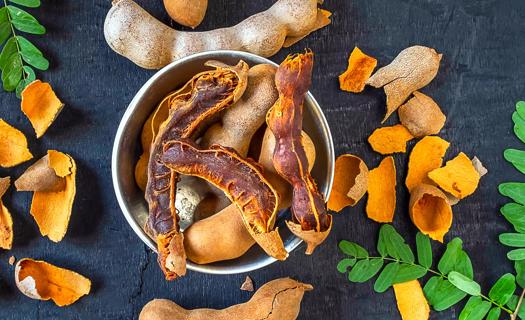
With a sweet, tangy flavor, this tropical fruit is super versatile and high in antioxidants

Raisins have a number of health benefits when eaten — but raisin water probably won’t do much for you

Full of antioxidants and nutrients, apricots may boost your eye, skin, digestive and overall health
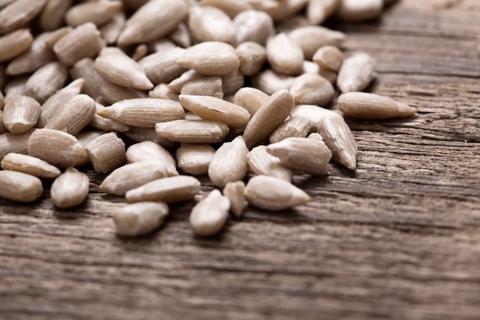
These tiny but mighty seeds can help fight cancer and inflammation and support thyroid health
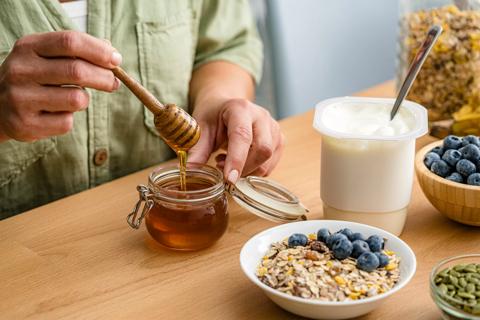
Its health benefits are impressive, but it’s still liquid sugar, so be sure to consume honey in moderation
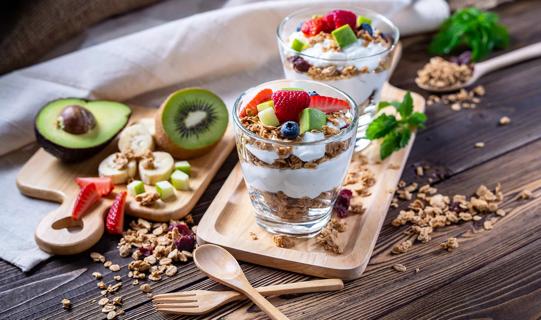
A change in diet won’t cure COPD — but getting to or maintaining a healthy weight will help

These trendy fungi may promote a healthy brain, heart and gut, but more research is needed to say for sure
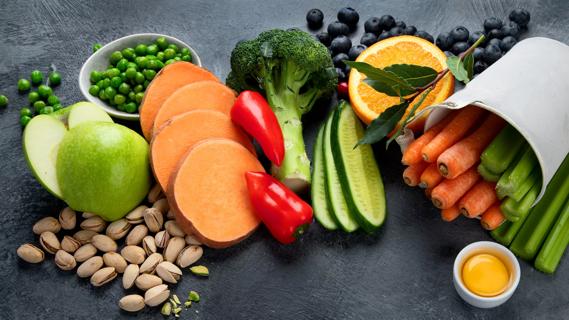
This powerful carotenoid can help with your eye and skin health, LDL reduction and cognitive function

Your metabolism may torch 1,300 to 2,000 calories daily with no activity

A gentle touch in all the right places may help drain your sinuses